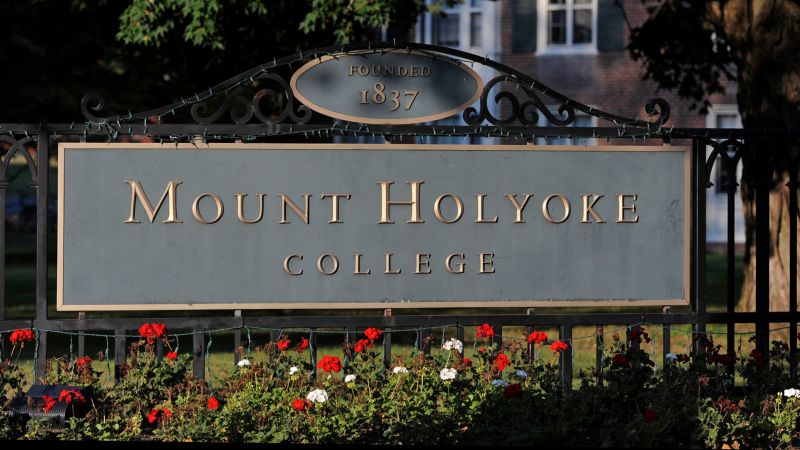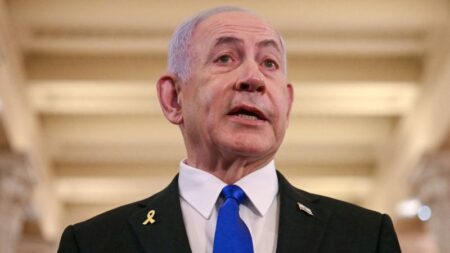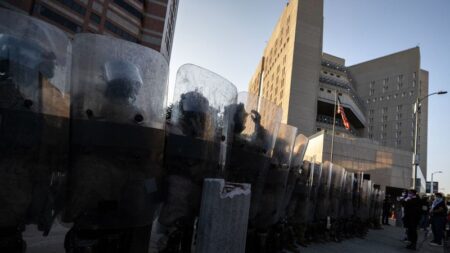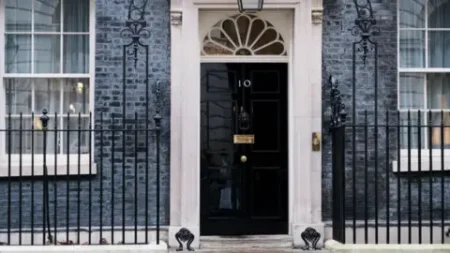At Mount Holyoke College, situated approximately 90 miles west of Boston, there is a palpable sense of uncertainty plaguing the institution’s administrators, particularly concerning international students who had anticipated beginning their studies in the United States. The impact of recent immigration policies, notably from the Trump administration, has left many schools scrambling to understand how these changes could affect their programs and the students they serve.
One significant move by the Trump administration involved halting new visa interviews for international students. This decision has created a scramble among educational institutions, as they seek to evaluate the broader implications for both their operations and the educational journey of prospective students. Professor Kavita Khory, who teaches politics at Mount Holyoke and oversees the school’s center for global initiatives, expressed the dismay and confusion faced by students who are eager to join the U.S. education system but are now left in a state of limbo. Of the 140 international students accepted for the upcoming academic year at Mount Holyoke, only 50 have successfully received their visas, with many others uncertain about when they can schedule appointments to secure their documentation.
The hesitance among international students to relocate for their education mirrors the situation faced by similar institutions across the nation. However, due to fears of backlash against voicing concerns about the administration’s decisions, many colleges and universities have refrained from publicly discussing the impact of these changes. A mere handful of the 50 colleges contacted by CNN were willing to share their thoughts on navigating this uncertain landscape. The officials who did respond conveyed that the economic ramifications of the State Department’s directive remain difficult to ascertain. The absence of clarity regarding the duration of visa interview halts has left many students searching for guidance that their schools cannot provide.
For the University of California system, Stett Holbrook, a spokesperson for the president’s office, conveyed serious concerns about the administration’s directive, particularly in light of the fact that international students composed approximately 9 percent of the system’s undergraduate enrollees for the 2024 academic year. This comes at a critical juncture for educational institutions as they navigate budget forecasts that hinge on the expected revenue from international students.
International students are not merely a financial asset to universities; they contribute significantly to the academic environment, research, and community service efforts within these institutions. Holbrook emphasized the urgency of resuming visa interviews to ensure that prospective students can navigate the application process and begin their education on time. However, with the potential for specific countries to face targeted scrutiny, concerns grow about the implications for students from nations like China, which accounts for nearly 25% of all international students in the United States. Secretary of State Marco Rubio’s recent announcement regarding aggressive visa revocations for Chinese students underlines the growing anxiety.
Students like Zilin Ma, a recent PhD graduate from Harvard, exemplify the frustration felt within the international student community. Ma has expressed feelings of betrayal despite adhering to all visa regulations, highlighting both the contribution of foreign students to U.S. academia and the inherent paradox of facing uncertainties amid the contributions they provide to research and the economy.
As the situation develops, many university officials underscore that the true damage from the policy lies in its execution and lack of transparency, which hampers informed decision-making. Without clarity on timelines from the State Department, uncertainty remains a pressing issue for both prospective and current students, especially those awaiting visa renewals. Educational institutions fear the long-term implications of these policies on their reputation and ability to attract international talent, as the very essence of what makes these campuses dynamic is threatened.
The recent policy shifts signal broader challenges for universities competing in a global educational landscape. Karen Edwards, dean of international student affairs at Grinnell College in Iowa, voiced concerns that the potentially hostile political climate could deter future students from considering U.S. institutions, undermining decades of progress in international education.
In conclusion, the landscape for international students in the U.S. is fraught with uncertainties that not only affect prospective students looking to begin their academic journeys but also pose significant challenges for educational institutions struggling to adapt to new realities. The projected financial, talent, and human impacts of these policies raise pertinent questions for the future health of higher education in the United States as it grapples with maintaining its position as a leader in global education.











